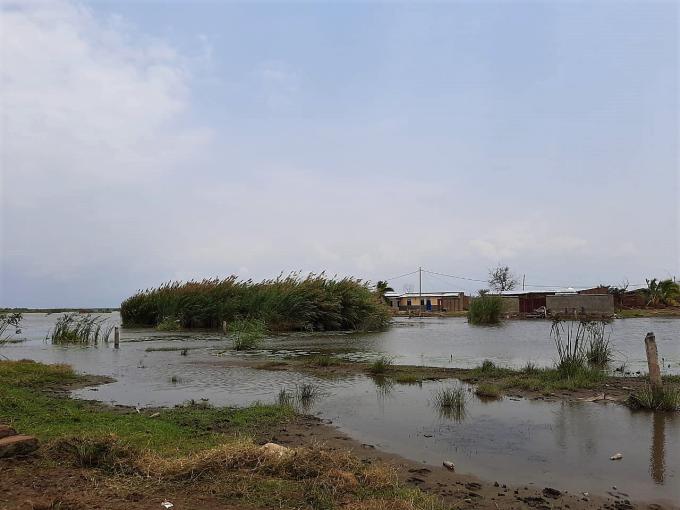Climate Change: Jeanne's Story
JEANNE*, 15, Burundi
· Additional people: Marie*, 12, Jeanne’s sister
*Names changed to protect identities
In Burundi in April 2020, entire villages west of the city of Bujumbura were overwhelmed by water, after days of torrential rains caused rivers and lakes to burst their banks.
In particular, the heavy rains of April 2020 caused the Rusizi river to burst its banks and displace over 6,000 households, including 15-year-old Jeanne* and her 12-year-old sister, Marie*.
Jeanne was living in a village near Bujumbura with her sister Marie when the rains caused the Rusizi river to overflow. Jeanne’s parents left her and her sister Marie many years ago, and she has no information of their whereabouts. Jeanne dropped out school when she was in 4th grade and never returned. Jeanne and her sister have had to do various daily simple jobs to get what to eat – taking it one time a day.
After the river overflowed, Jeanne and her sister managed to escape with some of their belongings. Within hours their home was destroyed and disappeared into the flood. Just like many other families, Jeanne and her sister were left displaced. Fortunately, government officials and non-government organisations were on hand to transport her to a displacement camp.
In the camp, Jeanne and Marie spent four nights sleeping outside. Since that time, they have now been settled in collective tents with other families, where they have been living for the past year and 2 months.
How is Save the Children helping Jeanne and her sister?
As a child headed household, Jeanne was identified by Save the Children to receive additional support, including hygiene and sanitation materials. She and her sister have received hygiene kits which include washable & reusable sanitary napkins, soap, cloths and a basin.
Save the Children in Burundi has responded to the immediate needs of populations affected by flooding by distributing a range of items, including hygiene kits, education materials (uniforms, exercise books, pens) and footwear, to about 1,000 affected children
Save the Children’s response also included case management, Psychosocial support services, health awareness raising, including on covid-19 prevention, as well as prevention and response to gender-based violence.
Jeanne*’s story in their own words (Quotes):
“At first the water did not reach the house where I lived with my 12 years old sister, but slowly and suddenly, our house was flooded”.
“One day I will get the support that I need and get a safe house to live in with my sister, go back to school and be a doctor or wear a Save the Children’s red jacket and work as a humanitarian helping families and children.”
“My big fear is getting pregnant while I am still young and in this displacement situation.”
“Save the Children gave me napkins, washing soaps, body lotion and a basin. I shared it with my sister. I appreciate the support, getting such items is a big challenge and missing them lead many young girls in prostitution.”
Background
Burundi is among 20 countries in the world most susceptible to climate change, and most of its humanitarian needs are caused by recurring climate-related disasters. United Nations Office for the Coordination of Humanitarian Affairs (OCHA) in 2020 reported a total of 34 905 (majority of them children) were affected by the recent floods.
Save the Children in Burundi in partnership with SOJPAE (a local NGO), revitalised the Child Protection committees as well as trained and coached community-based volunteer mobilisers. The community-based volunteers support our humanitarian work reaching the hardest to reach children.
Despite the different interventions made by the government and partners, the families continue to live in vulnerable conditions with the need for Food and NFI still immense. This is why we’ve added the flooding response to our humanitarian response in the region.
Interview conducted by: DUSHIME Entente Habib
Date of interview: 6th August 2021
Story edited by: Odette Ntambara
Country/region of interview: Burundi -Bujumbura
Interview language: Kirundi
 Rwanda
Rwanda 